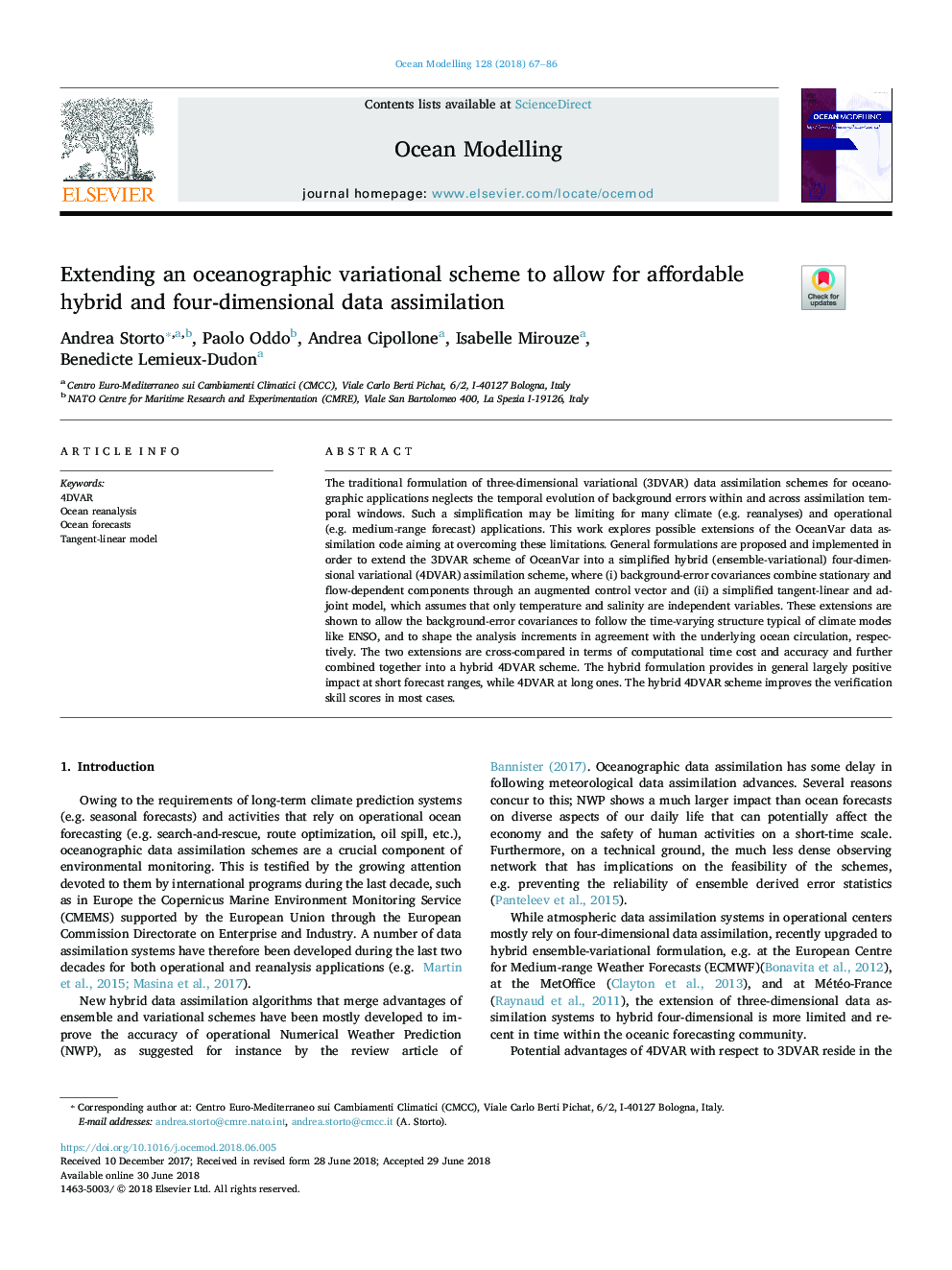| Article ID | Journal | Published Year | Pages | File Type |
|---|---|---|---|---|
| 8886490 | Ocean Modelling | 2018 | 20 Pages |
Abstract
The traditional formulation of three-dimensional variational (3DVAR) data assimilation schemes for oceanographic applications neglects the temporal evolution of background errors within and across assimilation temporal windows. Such a simplification may be limiting for many climate (e.g. reanalyses) and operational (e.g. medium-range forecast) applications. This work explores possible extensions of the OceanVar data assimilation code aiming at overcoming these limitations. General formulations are proposed and implemented in order to extend the 3DVAR scheme of OceanVar into a simplified hybrid (ensemble-variational) four-dimensional variational (4DVAR) assimilation scheme, where (i) background-error covariances combine stationary and flow-dependent components through an augmented control vector and (ii) a simplified tangent-linear and adjoint model, which assumes that only temperature and salinity are independent variables. These extensions are shown to allow the background-error covariances to follow the time-varying structure typical of climate modes like ENSO, and to shape the analysis increments in agreement with the underlying ocean circulation, respectively. The two extensions are cross-compared in terms of computational time cost and accuracy and further combined together into a hybrid 4DVAR scheme. The hybrid formulation provides in general largely positive impact at short forecast ranges, while 4DVAR at long ones. The hybrid 4DVAR scheme improves the verification skill scores in most cases.
Keywords
Related Topics
Physical Sciences and Engineering
Earth and Planetary Sciences
Atmospheric Science
Authors
Andrea Storto, Paolo Oddo, Andrea Cipollone, Isabelle Mirouze, Benedicte Lemieux-Dudon,
